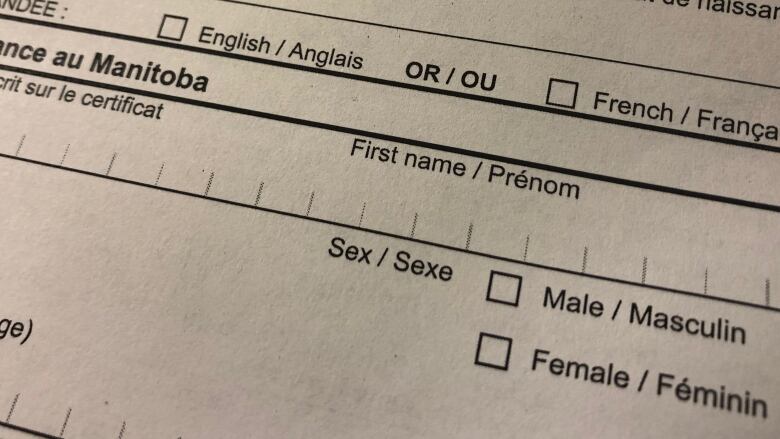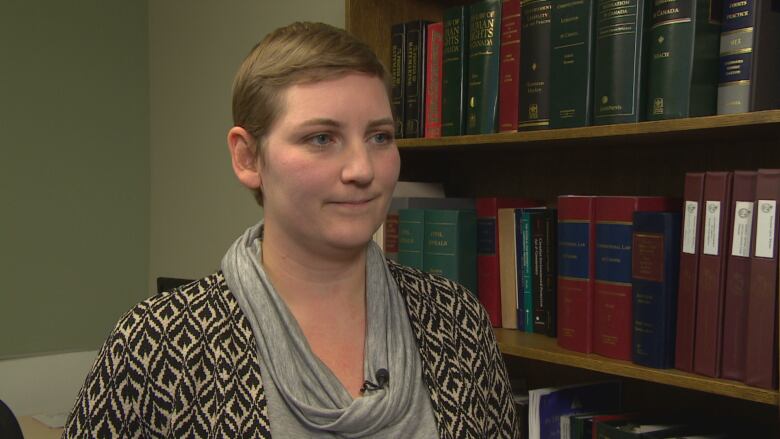2 Manitoba human rights complaints highlight ID, health-care barriers for non-binary and trans people
'This is about making sure that they have the same rights as any other Manitoban': Public Interest Law Centre

A pair of complaints to the Manitoba Human Rights Commission aim to push the province to improve health-care access for non-binary and transgender people, and to introduce more inclusive identification rules.
The complaints were filed by the Public Interest Law Centre on behalf of a group of non-binary individuals, as well as the advocacy organization Trans Manitoba, the PILC said in a news release Wednesday.
One complaint calls out the province over the lack of a non-binary option on government-issued identification and documentation. The other highlights barriers and gaps within the health-care system faced by transgender people.
"The Public Interest Law Centreis involved because this is an important public-interest issue when it comes to social inclusion for the trans and non-binary communities," said Allison Fenske, an attorney with the centre, which works with individuals and groups oncases that deal with public issues like human rights.
"This is about making sure that they have the same rights as any other Manitoban."

Manitoba government-issued ID, such as birth certificates and drivers' licences, currently only offers male and female options.
Other jurisdictions in Canada, including six provinces and the Northwest Territories, now offer options that are inclusive of non-binary individuals meaning Manitoba is lagging behind, said Fenske.
"It's problematic when those identification documents ask for, or require, a sex or gender designation that is not going to accurately reflect a whole portion of the population of Manitoba," she said.
The complaint is the latest attempt by non-binary people in Manitoba to have their gender identities officially recognized in government documents. The human rights commission held hearings on a similar case last month, in which a former Manitoban identified as T.A. brought a complaint over the lack of a non-binary option on birth certificates.
Last year, the Opposition Manitoba NDP introduced a private-member's bill that would have added a non-binary option to birth certificates, but it did not pass.
The bill was re-introduced in March and wouldadd a third "X" option on provincially issued ID.
"This is an issue that folks have been fighting for in Manitoba for some time," said Fenske.
"They've tried to go the route of lobbying governments, of advocating for change, and are now at the point of filing a human rights complaint because those previous efforts have been unsuccessful."
Barriers to health care
The second complaint targets Manitoba Health, Shared Health and the province's regional health authorities over a range of policies and practices that the complainants say make it hard for transgender people to get the health care they need.
Those include health cards that feature sex designations that don't match patients' gender identities, and barriers to accessing specific medical services and procedures which often are not covered by public health insurance.
"Just in that initial contact, having your gender identity questioned by the people who are supposed to be providing you care, that can be very traumatic for people and can actually limit them seeking out health care," said Fenske.
The human rights commission has not yet announced whether it will hold hearings on the complaints.
With files from Cameron MacLean












_(720p).jpg)


 OFFICIAL HD MUSIC VIDEO.jpg)
.jpg)



























































































